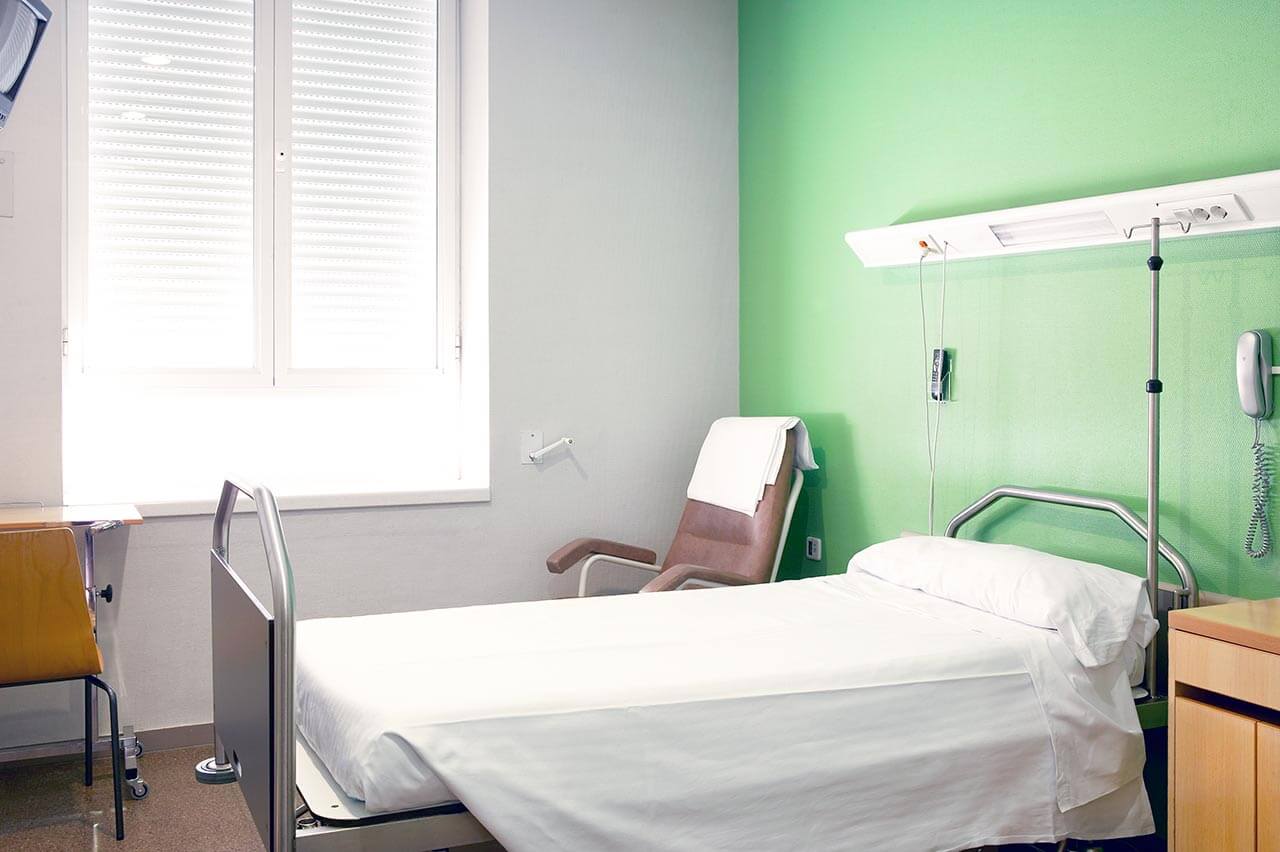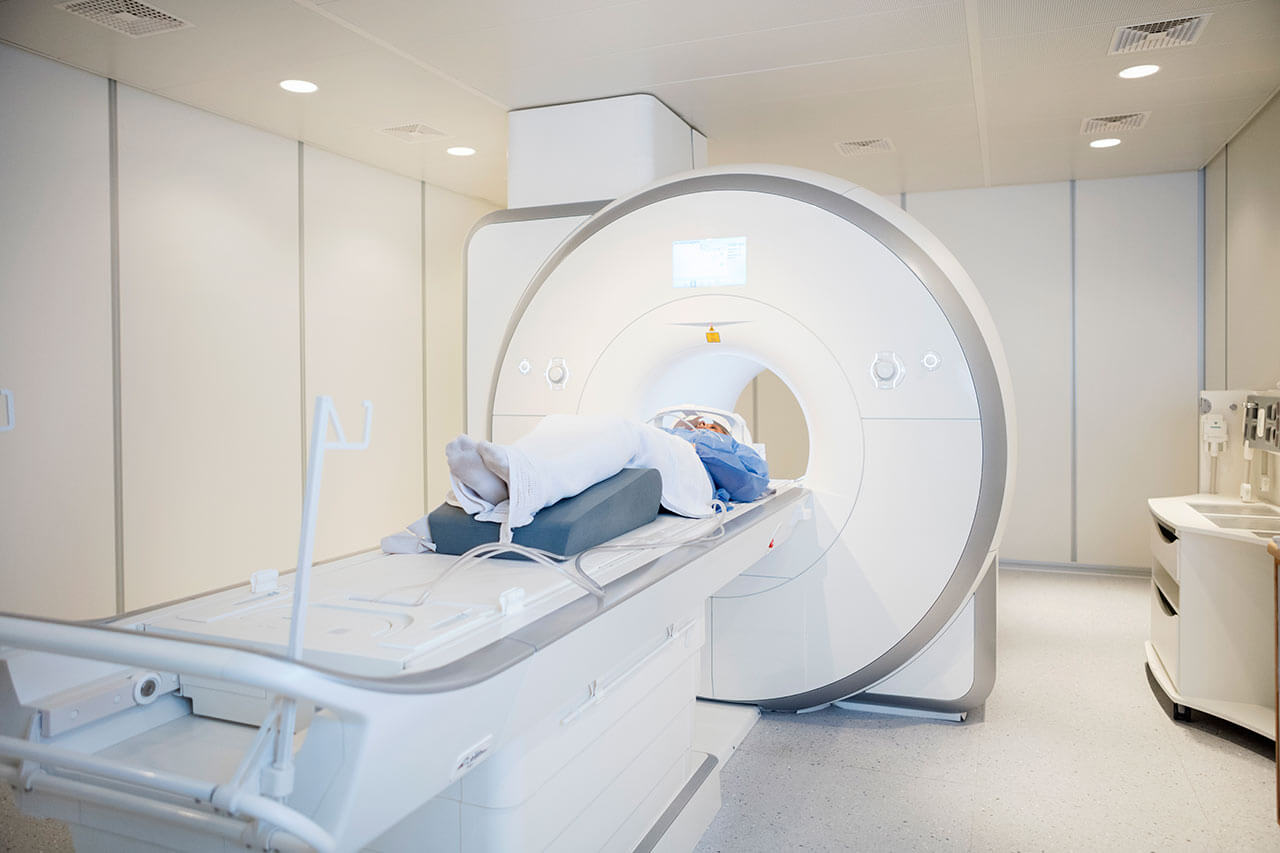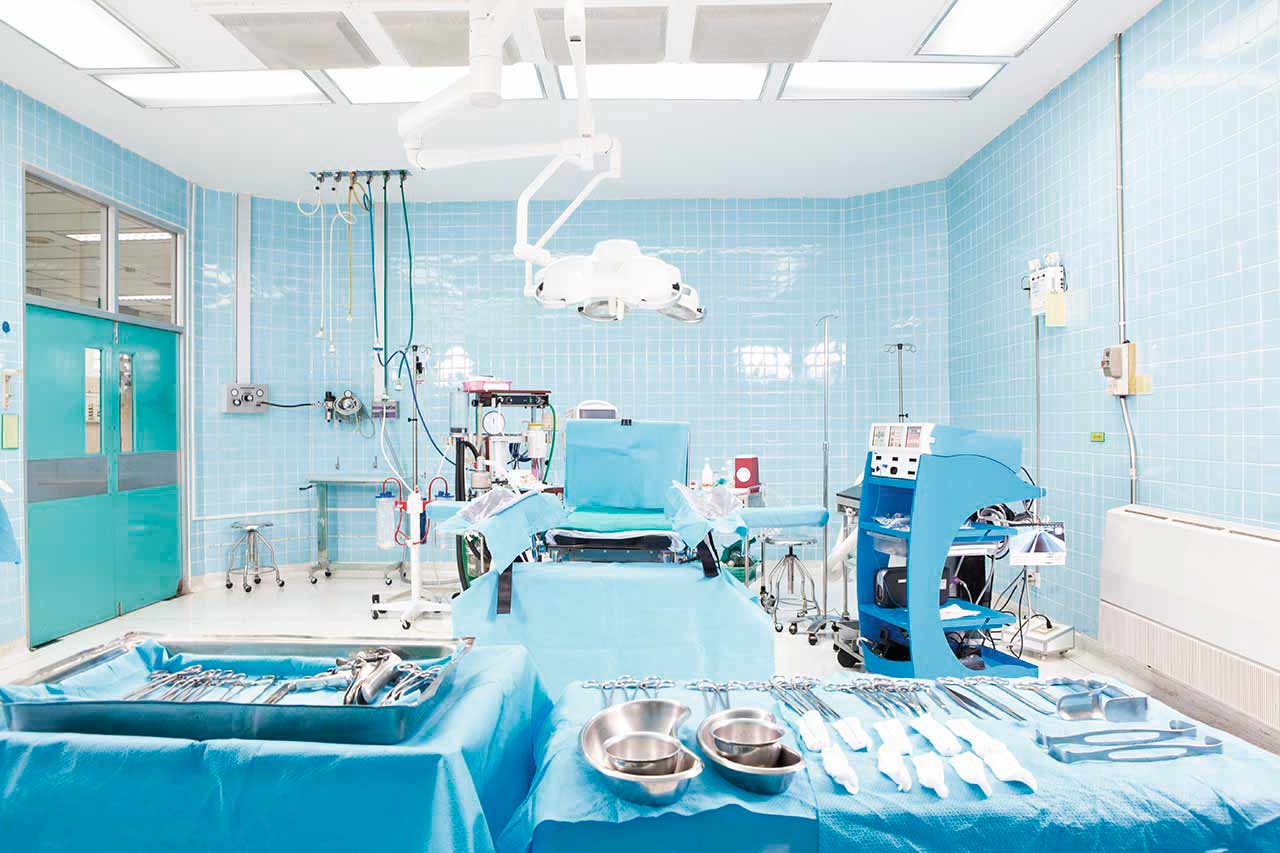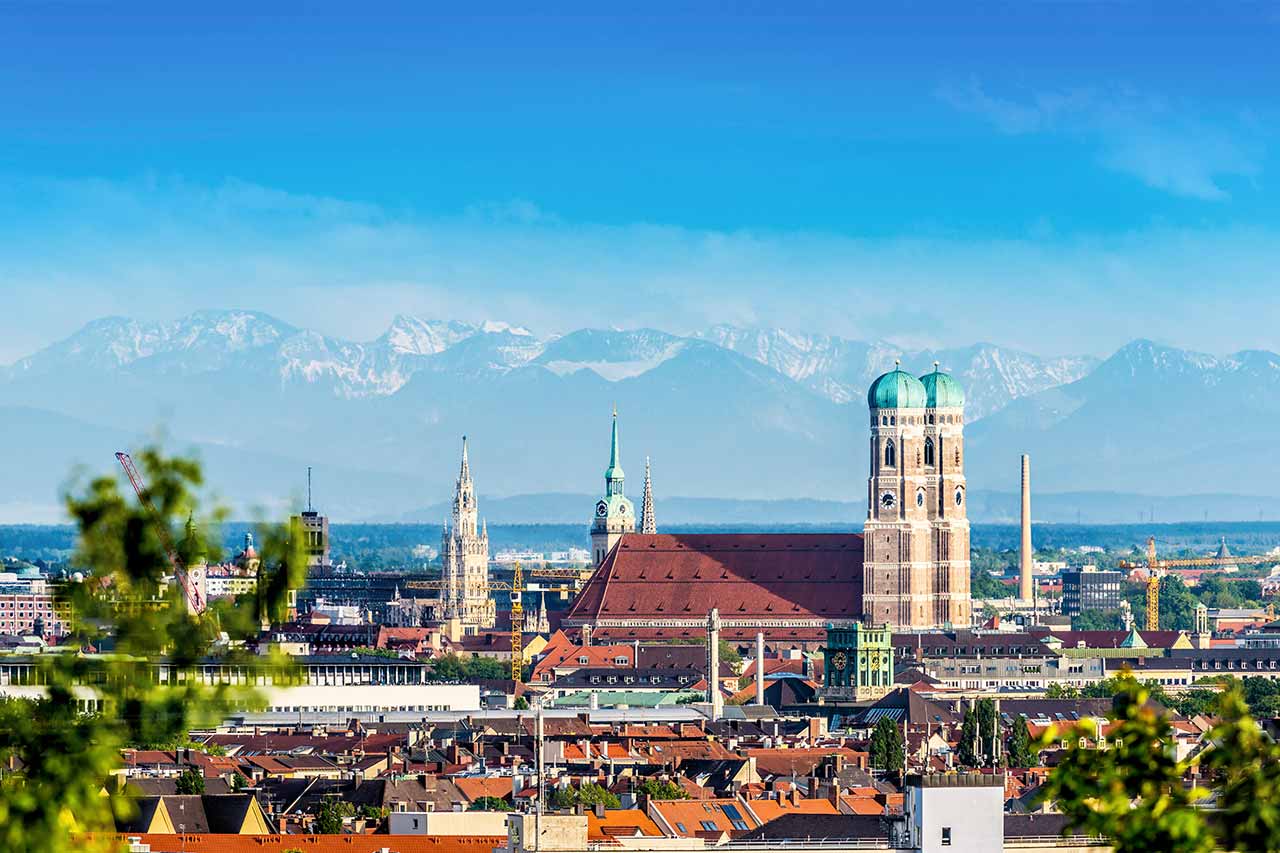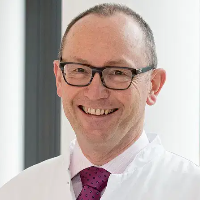
The program includes:
- Initial presentation in the clinic
- clinical history taking
- review of medical records
- physical examination
- laboratory tests:
- complete blood count
- general urine analysis
- biochemical blood test
- inflammation markers (CRP, ESR)
- blood coagulation analysis (aPTT, PT, INR)
- autoimmune tests
- ultrasound of the urogenital system
- CT/MRI of the abdomen and pelvic organs
(if indicated clinically, additional cost is 650/1200€) - nursing services
- consultation of related specialists
- treatment by chief physician and all leading experts
- explanation of individual treatment plan
Required documents
- Medical records
- Abdonimal and retroperitoneum US scan (if available)
- Abdonimal and retroperitoneum MRI/CT scan (if available)
Service
You may also book:
 BookingHealth Price from:
BookingHealth Price from:
About the department
The Department of Endocrinology, Rheumatology, Nephrology, Infectology and Angiology at the University Hospital of Ludwig Maximilian University of Munich provides highly accurate diagnostics and effective treatment of the full range of endocrine pathologies, metabolic disorders, diabetes mellitus, kidney pathologies, rheumatic diseases, and infections. The department also specializes in the conservative treatment of vascular pathologies, with the exception of the blood vessels of the heart and brain. The department provides medical care to more than 35,000 patients every year, both on an inpatient and outpatient basis. The admission of such a large number of patients testifies to the impeccable reputation of the medical facility in the European medical arena. Long clinical experience, high treatment success rates, modern therapeutic methods, and attentive patient care are the basis of the work of the department's doctors. The specialists prefer an individual approach to each patient and his clinical case, which also contributes to the achievement of excellent therapeutic results. The department is headed by Prof. Dr. med. Martin Reincke.
The team of endocrinologists treats diseases of the endocrine organs, such as the thyroid gland, parathyroid glands, adrenal glands, and pituitary gland. When treating these pathologies, doctors use modern drugs to normalize the work of the endocrine glands and a patient's condition. As a rule, symptomatic treatment is also carried out. A treatment regimen is prescribed on an individual basis, and the entire treatment process takes place under close medical supervision.
The department has excellent facilities for providing medical care to patients with metabolic disorders and diabetes mellitus. The healthcare facility regularly admits patients with osteoporosis. The condition is caused by decreased bone mineral density, which leads to fractures in minor injuries. In the case of this pathology, the department's doctors typically use drug therapy, diet correction to enrich it with vitamins and minerals to strengthen bones, and therapeutic exercises and physiotherapy procedures such as magnetotherapy, electrophoresis, therapeutic massage, and so on. Patients with diabetes mellitus or suspected diabetes can undergo all necessary tests to determine treatment tactics. An integral part of the therapeutic process is lifestyle modification, including diet, regular exercise, and giving up bad habits (smoking and drinking alcohol). Patients with type 1 diabetes mellitus are prescribed insulin therapy (they have insulin injections or pump insulin therapy). Those with type 2 diabetes mellitus can often take only oral hypoglycemic medications, but in some cases, insulin injections may also be required. In the case of type 1 and type 2 diabetes mellitus, it is important for patients to monitor their diet by excluding sweets, fatty foods, and other foods that increase blood glucose levels.
In the field of rheumatology, special attention is paid to treating polyarthritis, psoriatic arthritis, ankylosing spondylitis, reactive arthritis, enteropathic arthritis, collagenosis, and vasculitis. The department's specialists carry out laboratory tests and hardware diagnostics to assess a patient's condition and make an accurate diagnosis. Depending on the particular clinical case, the most effective drugs are prescribed, including nonsteroidal anti-inflammatory drugs, glucocorticoids, biological drugs, and others. Sanitary and resort treatment and exercise therapy are of particular value.
The nephrologists working at the medical facility are responsible for providing medical care to patients with kidney diseases and arterial hypertension, as well as caring for patients before and after kidney transplantation. The department's therapeutic options include drug therapy and modern extracorporeal blood purification procedures, such as renal replacement therapy (dialysis), apheresis, and immunoadsorption.
The department also specializes in treating infectious diseases. Of particular interest are infectious diseases, such as HIV, AIDS, chronic viral hepatitis B, D and C, tuberculosis, and sexually transmitted diseases. Treatment is carried out in accordance with current clinical protocols.
The department's therapeutic options are complemented by conservative treatment of vascular pathologies, with the exception of the blood vessels of the heart and brain. Doctors of this specialization cooperate closely with the Department of Vascular Surgery, so if an endovascular or open surgery is required, a patient can be sure that he will receive effective medical care. The department's angiologists focus on patients with occlusive peripheral arterial disease, venous thromboembolism, lymphedema, lipedema, and rare vascular pathologies.
The department's service range includes the diagnostics and treatment of the following diseases:
- Endocrinology
- Endocrine diseases
- Thyroid diseases
- Nodular goiter
- Hyperthyroidism
- Hypothyroidism
- Autoimmune thyroiditis
- Thyroid cancer
- Parathyroid diseases
- Hyperparathyroidism
- Hypoparathyroidism
- Parathyroid cancer
- Adrenal diseases
- Adrenogenital syndrome
- Conn's syndrome
- Cushing's syndrome
- Pheochromocytoma
- Adrenal cancer
- Pituitary diseases
- Acromegaly
- Pituitary adenoma
- Pituitary cancer
- Thyroid diseases
- Metabolic disorders
- Osteoporosis
- Lipid metabolism disorders
- Protein metabolism disorders
- Carbohydrate metabolism disorders
- Diabetes mellitus
- Type 1 diabetes mellitus
- Type 2 diabetes mellitus
- Gestational diabetes mellitus
- Endocrine diseases
- Rheumatology
- Polyarthritis
- Psoriatic arthritis
- Ankylosing spondylitis
- Reactive arthritis
- Enteropathic arthritis
- Collagenoses
- Vasculitis
- Nephrology
- Pyelonephritis
- Hydronephrosis
- Nephropathy
- Kidney stone disease
- Kidney failure
- Benign and malignant kidney tumors
- Infectology
- HIV
- AIDS
- Chronic viral hepatitis B, D and C
- Tuberculosis
- Sexually transmitted diseases
- Angiology
- Occlusive peripheral arterial disease
- Venous thromboembolism
- Lymphedema
- Lipedema
- Rare vascular pathologies
- Other diseases and pathological conditions
Curriculum vitae
Higher Education and Professional Career
- Since 2004 C4 Professor in Internal Medicine with a focus on Endocrinology and Head Physician, Department of Endocrinology, Rheumatology and Nephrology at the University Hospital of Ludwig Maximilian University of Munich.
- 1998 - 2004 C3 Professor in Internal Medicine with a focus on Endocrinology and Diabetology, Albert Ludwig University of Freiburg.
- 1996 - 1998 Consultant, Department of Internal Medicine, University Hospital Wuerzburg.
- 1995 Habilitation.
- 1994 Board certification in Internal Medicine.
- 1992 - 1995 Further professional training in Internal Medicine, Department of Internal Medicine, University Hospital Wuerzburg.
- 1986 Thesis defense, University of Cologne.
- 1985 - 1990 Fellow, Department of Internal Medicine, University Hospital Cologne.
- 1985 Admission to medical practice.
- 1980 - 1985 Human Medicine studies, University of Cologne.
- 1978 - 1980 Human Medicine studies, Heidelberg University.
Fellowships, Prizes and Awards
- 2016 European Research Board Extended Grant in the Pathophysiology of Primary Aldosteronism.
- 2014 Prize for Good Teaching from the Bavarian Ministry of Education, Culture, Science and Art.
- 2008 Member of the German National Academy of Sciences Leopoldina.
- 1998 Poster Award from the German Society for Endocrinology.
- 1995 Schöller-Junkmann Award from the German Society of Endocrinology.
- 1994 Poster Award from the German Society of Internal Medicine.
- 1991 - 1992 German Research Foundation (DFG) Fellowship Grant at the National Institutes of Health, Bethesda, USA.
Memberships in Scientific Societies
- 2014 - 2017 President of the German Society of Endocrinology (DGE).
- 2010 - 2013 Member of the Executive Committee of the European Society of Endocrinology.
- Since 2004 Founding Member of the Steering Committee of the European Network for the Study
of Adrenal Tumors (ENSAT), since 2008 Chairman.
- Since 2010 National Representative of the Steering Committee of the European Science Foundation Network for the Study of Adrenal Tumors (ENSAT-ESF).
- 2005 Member of the Scientific Committee of the German-Israeli Research Foundation.
- 2005 Member of the Scientific Committee of the Friedrich Baur Foundation.
- 2004 Member of the Scientific Advisory Board of the August Lenz Foundation.
- 2001 Member of the Steering Committee of the European Adrenal Tumor Network.
- 2000 - 2002 Board Member, European Society for Clinical Research.
- 2000 - 2003 Member of the Executive Committee of the German Society of Endocrinology (DGE).
Photo of the doctor: (c) LMU Klinikum
About hospital
According to the Focus magazine, the University Hospital of Ludwig Maximilian University of Munich is regularly ranked among the best medical institutions in Germany!
The hospital is the largest multidisciplinary medical facility, as well as a leading research and training center in Germany and Europe. The hospital is proud of its bicentenary history and tirelessly confirms its primacy at the national and international levels. The outstanding quality of medical care is complemented by highly productive research activities, thanks to which many effective diagnostic and therapeutic methods, saving people’s lives, have been presented in medical practice.
The medical facility includes two main buildings, Grosshadern and Innenstadt. The hospital has 29 specialized departments, 53 interdisciplinary centers, 11 institutes, and many sections. More than 500,000 patients are treated here every year, which indicates the hospital's excellent reputation. A large and highly professional medical team, consisting of 1,800 doctors and 3,300 nursing staff, works for the benefit of patients. The hospital has 2,000 beds to accommodate patients.
The hospital's infrastructure deserves special attention: advanced diagnostic equipment that allows doctors to detect the slightest pathological changes in the human body, the latest operating rooms with highly efficient monitoring systems, robot-assisted surgical systems that facilitate sparing operations, and proper postoperative care.
Excellent technical resources and highly professional medical staff are undoubtedly the hospital's pride, but the medical facility also pays attention to the patient's comfort and to a humane attitude toward their life situation. When providing the necessary medical care, doctors and nursing staff always show a friendly attitude, inform patients in detail about the upcoming diagnostic and therapeutic procedures, gladly answer all questions of interest to patients, and provide moral support during the therapeutic process.
The hospital has many prestigious quality certificates, including a DIN EN ISO 9001 certificate, an IQM certificate, an endoCert certificate, certificates from the German Cancer Society (DKG) for treating various types of cancer, the German Cardiac Society (DGK), the German Society for Orthopedics and Trauma Surgery (DGOU), etc. Thus, patients can count on the best possible treatment outcome due to the use of the most effective and, at the same time, sparing therapeutic techniques.
Photo: (с) depositphotos
Accommodation in hospital
Patients rooms
The patients of the University Hospital of Ludwig Maximilian University of Munich live in comfortable, spacious, single and double patient rooms with a modern design. Each room is equipped with an ensuite bathroom with a shower and toilet. The furnishing of a standard patient room includes a comfortable bed, the position of which can be adjusted using the remote control, a locker for storing personal belongings, a TV, and a telephone. Also, if desired, you can connect to the Internet. In addition, patients can opt for enhanced-comfort rooms, with a safe, a fridge, and upholstered furniture.
The hospital has an excellent infrastructure. The medical facility’s area houses a bank, ATMs, a hairdresser, shops with a wide range of food, drinks, newspapers, magazines, and personal hygiene items, play areas for children, and a beautiful garden for walking, etc.
Meals and Menus
The patient and his accompanying person are offered a daily choice of three menus, including a vegetarian one. If you are on a specific diet for any reason, you will be offered an individual menu. Please inform the medical staff about your dietary preferences prior to the treatment.
Further details
Standard rooms include:
Religion
Religious services are available upon request.
Accompanying person
Your accompanying person may stay with you in your room or at a hotel of your choice during the fixed program.
Hotel
You may stay at a hotel of your choice during an outpatient program. Our managers will help you to choose the best option.
The hospital offers a full range of laboratory tests (general, hormonal, tests for infections, antibodies, tumor markers, etc.), genetic tests, various modifications of ultrasound scans, CT scans, MRI and PET/CT, angiography, myelography, biopsies, and other examinations. Treatment with medications, endoscopic and robotic operations, and stereotaxic interventions are carried out here, modern types of radiation therapy are also used. The hospital offers patients all the necessary therapeutic techniques.
- Allogeneic bone marrow transplantation
- Microsurgical transplantation of head and neck tissues
- Microsurgical resection of brain tumors with intraoperative fluorescence
- Minimally invasive treatment of spine pathologies
- Joint replacement with postoperative rehabilitation (fast track program)
Patients with benign and malignant neoplasms of various localizations, pathologies of arteries and veins, herniated discs, osteoporosis, congenital and acquired pathologies of the musculoskeletal system, benign and malignant pathologies of the mammary gland, and other pathologies.
Which specialties of the University Hospital of Ludwig Maximilian University of Munich are the best?
- Interventional and diagnostic neuroradiology
- Vascular surgery
- Cardiac surgery
- Mammalogy
- Gastroenterology and hepatology
Over 1,700 highly qualified doctors work at the hospital.
